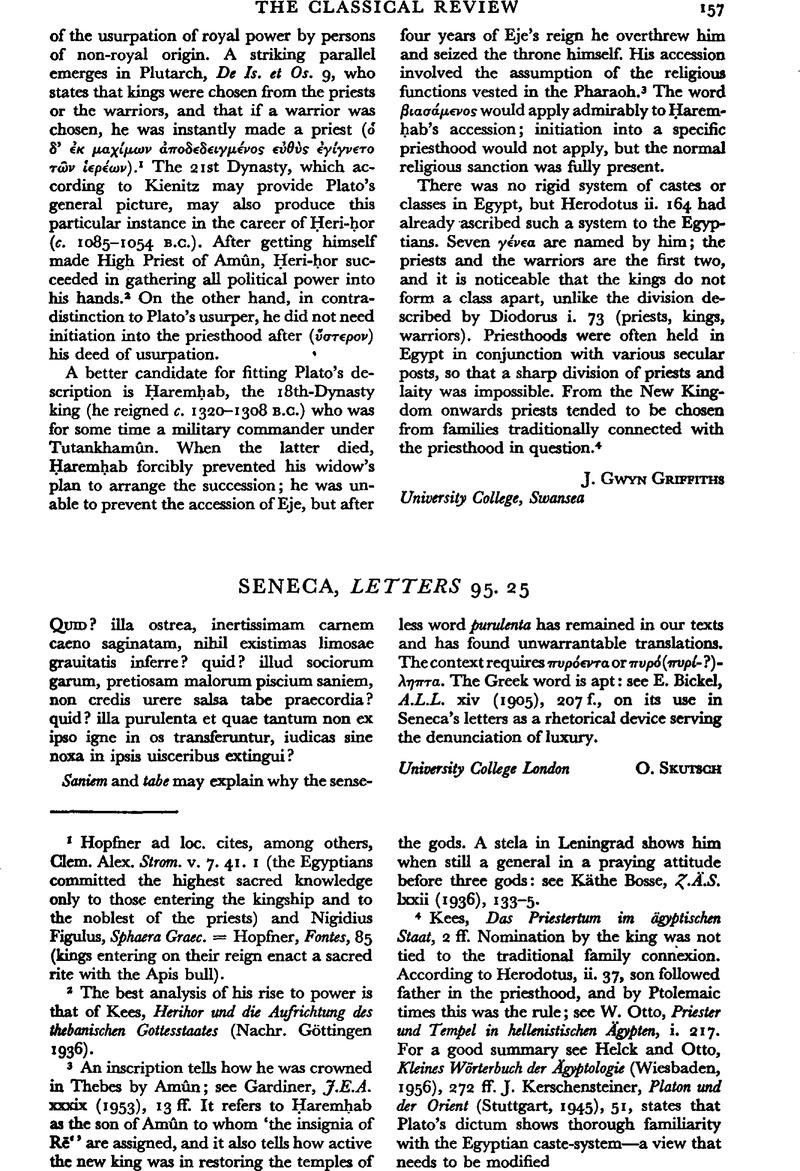No CrossRef data available.
Article contents
Seneca, Letters 95. 25
Published online by Cambridge University Press: 27 February 2009
Abstract

- Type
- Review Article
- Information
- Copyright
- Copyright © The Classical Association 1965
References
1 Hopfher ad loc. cites, among others, Clem. Alex. Strom, v. 7. 41. 1 (the Egyptians committed the highest sacred knowledge only to those entering the kingship and to the noblest of the priests) and Nigidius Figulus, Sphaera Graec. = Hopfher, Fontes, 85 (kings entering on their reign enact a sacred rite with the Apis bull).
2 The best analysis of his rise to power is that of Kees, Herihor und die Aufrichtung des thebanischen Gottesstaates (Nachr. Göttingen I936).
3 An inscription tells how he was crowned in Thebes by Amûn; see Gardiner, J.E.A. xxxix (1953), 13 ff. It refers to Haremhab as the son of Amûn to whom ‘the insignia of Rē'’ are assigned, and it also tells how active the new king was in restoring the temples of the gods. A stela in Leningrad shows him when still a general in a praying attitude before three gods: see Kathe Bosse, Z.A.S. lxxii (1936), 133–5.
4 Kees, Das Priestertum im ägyptischen Stoat, 2 ff. Nomination by the king was not tied to the traditional family connexion. According to Herodotus, ii. 37, son followed father in the priesthood, and by Ptolemaic times this was the rule; see W. Otto, Priester und Tempel in hellenistischen Ägypten, i. 217. For a good summary see Helck and Otto, Kleines Wörterbuch der Ägyptologie (Wiesbaden, 1956), 272 ff. J. Kerschensteiner, Platon und der Orient (Stuttgart, 1945), 51, states that Plato's dictum shows thorough familiarity with the Egyptian caste-system—a view that needs to be modified




